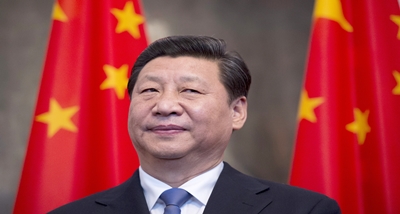Chinese President Xi Jinping on Monday said China would encourage its companies to invest no less than $10 billion in Africa over the next three years, amid efforts to assuage concerns over Chinese investments in the region. Addressing the Eighth Ministerial Conference of the Forum on China-Africa Cooperation (FOCAC) virtually on Monday, President Xi said that China will set up a China-Africa cross-border yuan center to provide African financial institutions with a credit line of $10 billion.
The announcement comes amid alarm over what is described as China’s “debt trap” diplomacy. China has been accused by Western countries of luring poor countries into “debt traps” which they are unable to repay. Cash-strapped countries have been pushed to stake sovereign assets such as airports and seaports to access credit under onerous loan terms.
The latest concerns and allegations are about Uganda that China may take over Uganda’s only international airport if the east African country fails to service a $200 million loan which it took for the expansion of the facility.
African media reported that a parliamentary probe in Uganda last month concluded that some of the unfavourable provisions in the loan agreement, if not amended, expose Uganda’s sovereign assets to attachments and take-over by Beijing. This sparked public outrage in Uganda which secured this loan in 2015 from China’s Exim Bank, in which it waived the sovereign immunity on airport assets to secure the deal.
The agreement also requires any dispute arbitration or court proceedings to take place in China under Chinese law. Request from Uganda this year to renegotiate the loan terms had been rejected by China’s Exim Bank. Both China and Ugandan authorities denied any such concerns of looming danger of takeover of the airport.
Observers are taking these statements with a pinch of salt, which they say are aimed more at cooling off tempers during the ongoing FOCAC meeting.
They are in wait and watch mode referring to Chinese actions in the past regarding the interpretation of the agreements for example in Hong Kong, in Sri Lanka etc. among others. In a similar situation, Sri Lanka was forced to surrender its Hambantota Port to Beijing on a 99-year lease after it failed to repay the loans taken to build it.
Pakistan, a debt-ridden country under FATF grey list is also in the clutches of Chinese loans to the extent that it resorted to Chinese loan to serve another loan. There have been reports in media about growing resentment against China-funded projects in Pakistan specially in Gwadar region in Baluchistan.


Comment here